Friends of AHBIC
If you aren’t already a Friend of AHBIC, we welcome you to join our group of organisations and individuals who are supporting Australia’s national beekeeping industry that supports you.


If you aren’t already a Friend of AHBIC, we welcome you to join our group of organisations and individuals who are supporting Australia’s national beekeeping industry that supports you.
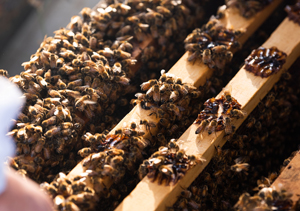
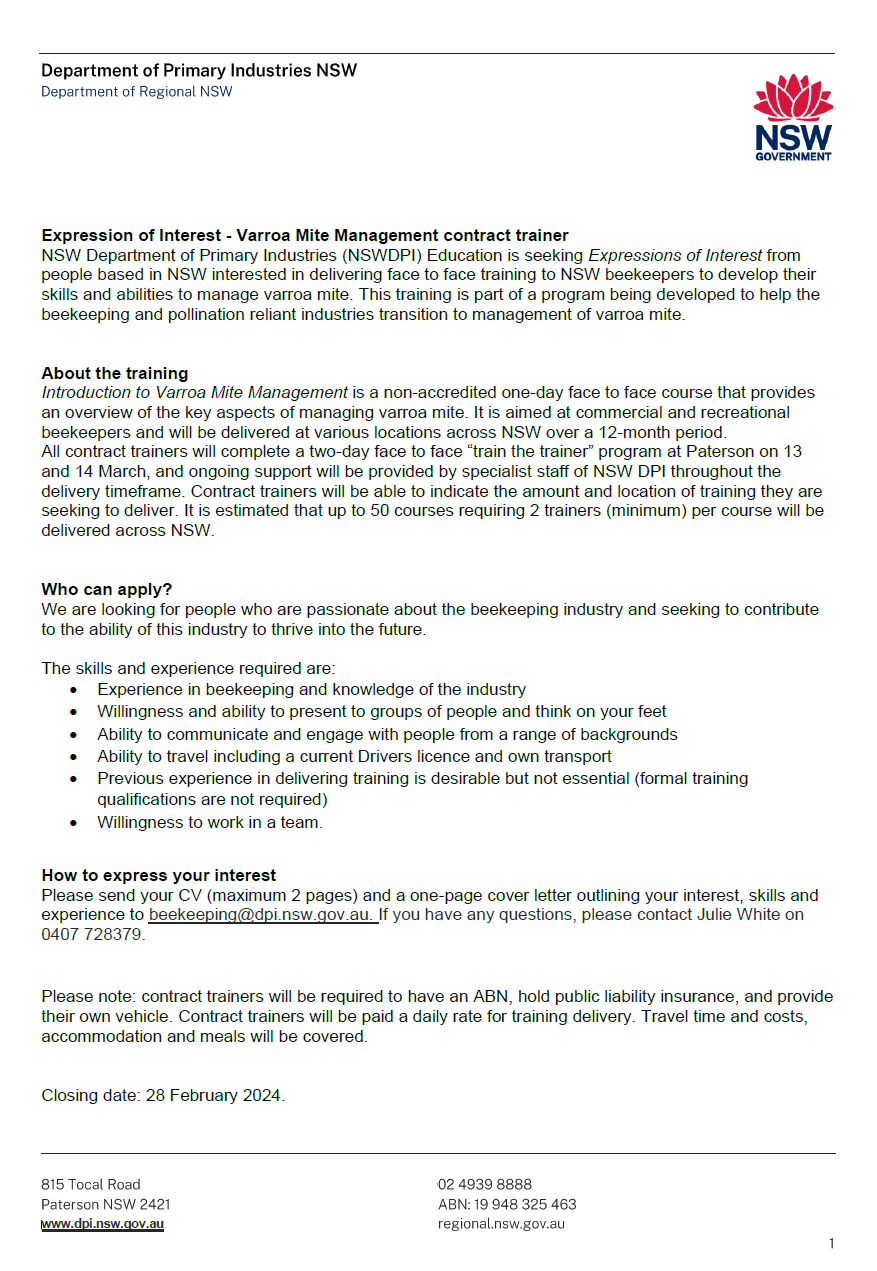
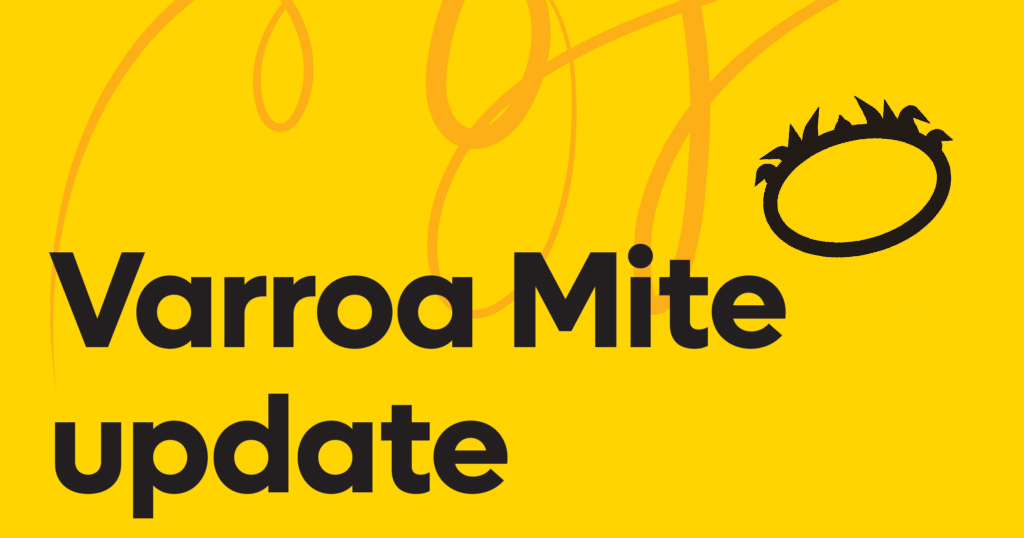
The National Management Group met on Friday 9th February where the Varroa Response Transition to Management Plan was approved. The unanimous agreement being passed means activities can now formally commence, a positive outcome for industries and jurisdictions. AHBIC praises all attendees on getting the T2M plan over the line. The NMG lowered the agreed upper limit costs of the response to a maximum expenditure of $100 million dollars inclusive of T2M, of this cost-sharable amount the honey bee industry is responsible for 1.1%.
AHBIC successfully advocated for exceptional circumstances to be applied at NMG, allowing for an extension of timeframe beyond the usual 12 months to 24 months’ for T2M activities. AHBIC’s application to the NMG was successful resulting in an historic achievement. A big win for our national honey bee industry. This extension will allow critical activities like extension across all jurisdictions to continue over a longer period. This will ensure all beekeepers have the opportunity access the resources as needed.
A significant portion of the T2M will focus on education. The development of national education materials and rollout of non-accredited workshop training will commence for a period of 12 months. This will include face to face training events across all jurisdictions for all beekeepers, online learning, webinars, factsheets and video resources.
Varroa Development Officers will be employed in each of the jurisdictions to assist beekeepers in Varroa mite management and/or planning through hands on engagement with beekeepers. These new roles will focus on engaging practically with beekeepers around hive health monitoring, extension of best management practice guidelines, presentations and engagement at club and association branches and to also promote other T2M activities such as implementation of the COLOSS survey in Australia.
A Pollination Industry Coordinator will also form part of T2M activities to assist with additional extension and engagement activities specifically for the pollination-dependent industries and their key industry contacts. This will be a great conduit for our industry to work more closely with our pollination-dependent colleagues.
The Code, BOLT and the Manual provide a framework for Australian beekeepers to use best practice biosecurity measures and is legislated in some jurisdictions. Each of these national documents are based on the principles of good biosecurity and describe the outcomes a beekeeper needs to achieve for good pest and disease prevention and control. All updates will need to reflect Varroa’s presence in Australia.
Establishment of an Australian COLOSS survey will assist in helping understand the effects of Varroa mite on beekeeping in Australia. Participating in this global initiative of standardised colony loss survey will help industry drive future research priorities, treatment recommendations and practice changes. AHBIC will oversee this activity with extension provided through the Varroa Development Officers nationally.
Both important activities for industry, the first being assessing existing industry capability and capacity and determining a clear strategy and pathway to achieving Varroa resistant stock. Secondly, workshops on advanced queen breeding will be delivered across key regional areas to further develop experienced queen producers with knowledge, techniques and resources to advance this important industry sector.
Surveillance/Monitoring
Mandatory hive monitoring and reporting for varroa every 16 weeks remains in place across all of NSW. For all beekeepers, regularly monitoring hives, at minimum every 16 weeks, for presence of varroa through alcohol/soapy water washing/sugar rolling and reporting results can impact on timely management choices and reduce the impacts of varroa across the landscape.
To learn more about alcohol washing check out the nationally agreed resource Bee Pest Blitz: https://www.planthealthaustralia.com.au/beepestblitz/
You can reach out to AHBIC via:
Varroa Coordinator
Bianca Giggins
0402 467 780
AHBIC, its employees, executive and consultants expressly disclaim all and any liability to any person in respect of anything, and the consequences of anything, done or omitted to be done in reliance, whether wholly, partly, upon the whole or any part of the contents of this industry update document.
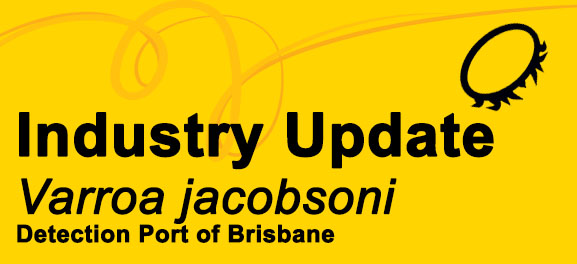
On 19 February 2024, Biosecurity Queensland detected a single suspect Varroa mite in one of the six sentinel hives of Apis mellifera at the Port of Brisbane.
CSIRO has confirmed the mite Varroa jacobsoni and the Elizabeth Macarthur Agricultural Institute, Menangle, NSW, is testing for the presence of exotic honey bee viruses.
The single infected sentinel hive has been euthanised and further testing and diagnostics will be conducted to confirm it is a single mite. The remaining 5 hives at the Port have undergone additional surveillance by Biosecurity Queensland, including immediate alcohol washes, drone uncapping (where possible) and additional miticide strips and mats. To date, no further mites have been found in either the euthanised infected hive nor the other 5 remaining sentinel hives at the Port of Brisbane.
Biosecurity Queensland have stood up an Incident Management Team (IMT) and are preparing for the next steps in this evolving situation. Delimiting surveillance is planned along with volunteer industry involvement. AHBIC reminds beekeepers that in Queensland, varroa mite (both V. destructor and V. jacobsoni) is listed as prohibited matter under the Biosecurity Act 2014.
A Movement Control Order is in place to assist in preventing the spread of Varroa, beekeepers are not permitted to move any bee(living or dead), a swarm, nest or hive of bees, apiary equipment, or apiary products within the Control Area. A map of the area surrounding the Port of Brisbane shows the Control Area:
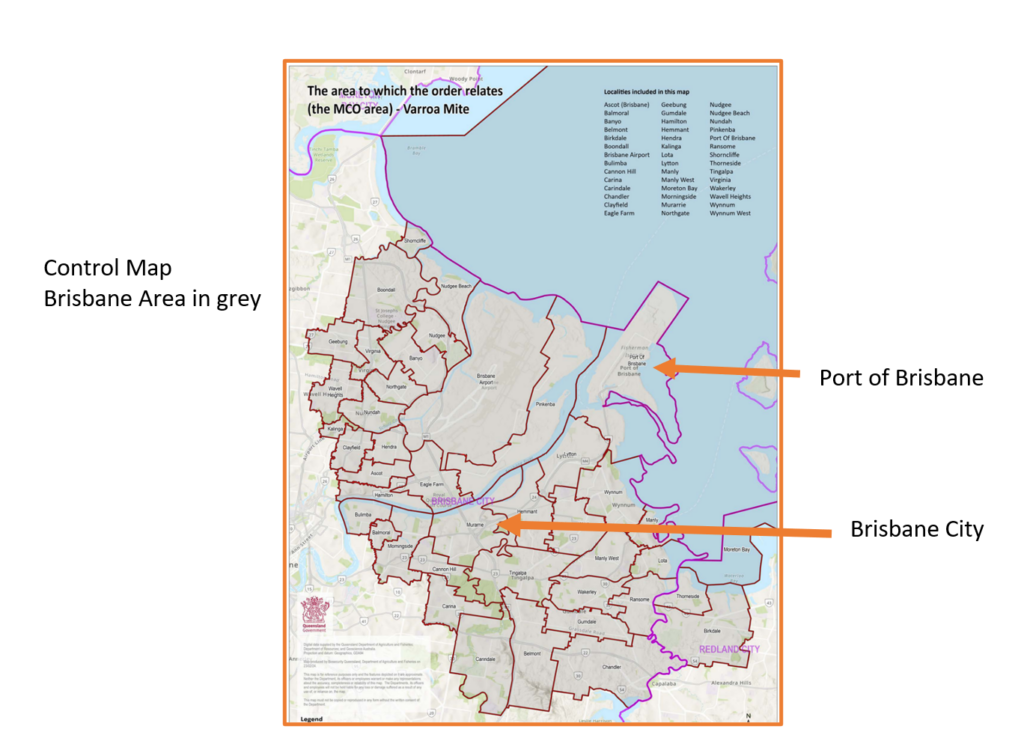
For detailed information beekeepers should refer to the Movement Control Order: varroa-mite-carriers-movement-control-order.pdf (publications.qld.gov.au)
AHBIC encourages QLD beekeepers to be registered and stay up to date through Queensland Department of Agriculture and Fisheries website: Varroa mite alert | Business Queensland or https://www.business.qld.gov.au/industries/farms-fishing-forestry/agriculture/animal/industries/bees/varroa-mite
Importantly, all beekeepers should remember that the state of Queensland remains a biosecurity zone and any movements of Varroa mite carriers into Queensland require an approved permit through: https://www.daf.qld.gov.au/business-priorities/biosecurity/policy-legislation-regulation/biosecurity-instrument-permit
To learn more about alcohol washing check out the nationally agreed resource Bee Pest Blitz: https://www.planthealthaustralia.com.au/beepestblitz/
You can reach out to AHBIC via:
Varroa Coordinator
Bianca Giggins
0402 467 780
AHBIC, its employees, executive and consultants expressly disclaim all and any liability to any person in respect of anything, and the consequences of anything, done or omitted to be done in reliance, whether wholly, partly, upon the whole or any part of the contents of this industry update document.
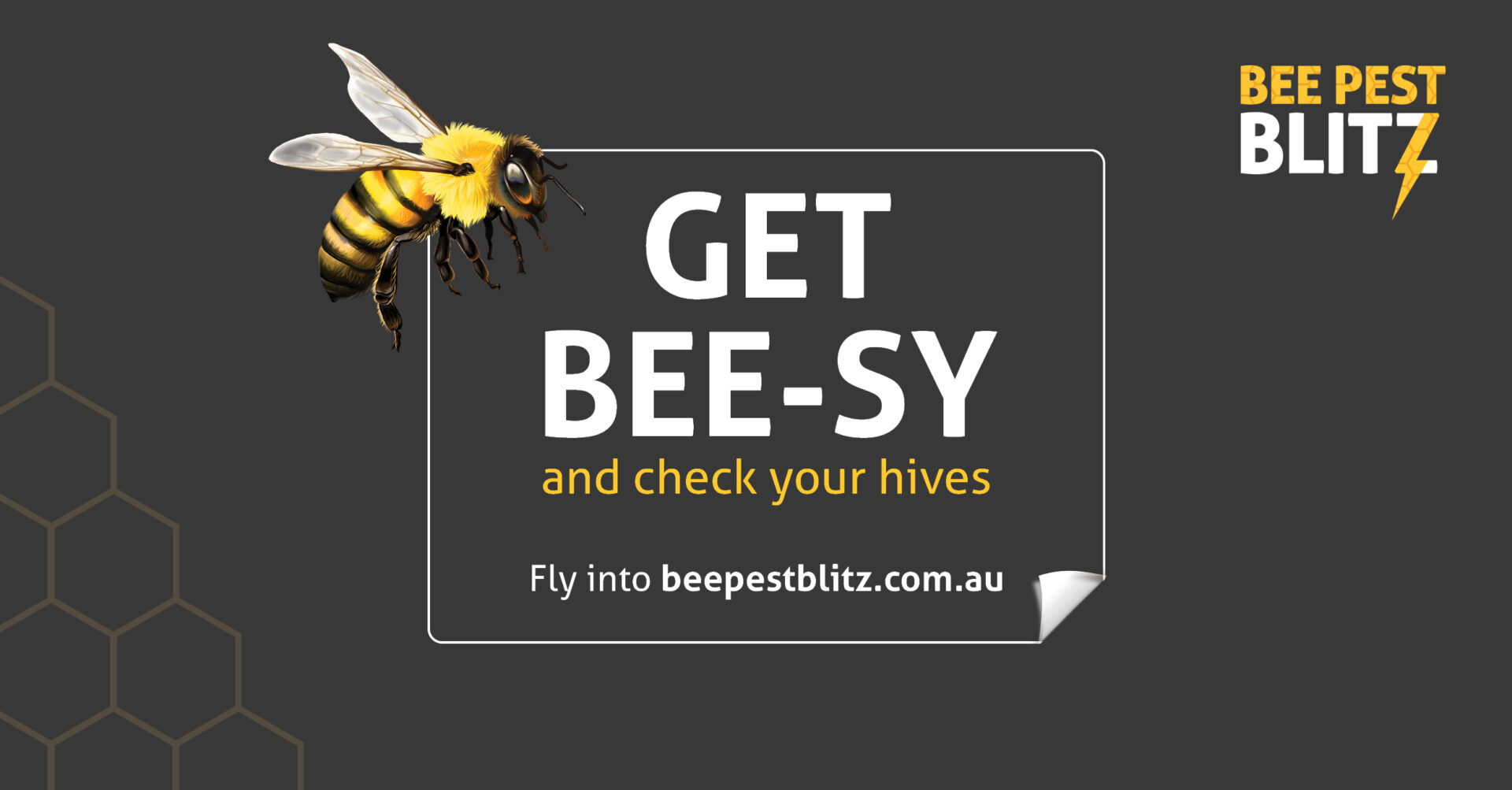
Bee Pest Blitz is an initiative throughout April annually, it is a national campaign to increase awareness of the importance of bee biosecurity and encourage beekeepers to inspect their hives for high priority exotic pests.
This national month-long call-to-action campaign encourages beekeepers to conduct surveillance during the month of April.
The Bee Pest Blitz website beepestblitz.com.au is live and contains resources to assist beekeepers to conduct alcohol washes on their hives and report their findings.
Bee Pest Blitz is a Department of Agriculture, Fisheries and Forestry (DAFF) funded initiative, led by Plant Health Australia (PHA), and supported by the Australian Honey Bee Industry Council (AHBIC) and all state and territory governments.
Bee Pest Blitz will be supported by Bee Biosecurity Officers (BBOs) in each state under the National Bee Biosecurity Program (NBBP), and engagement and networking with the National Bee Pest Surveillance Program (NBPSP).
By participating in the Bee Pest Blitz month, Australian beekeepers will fulfil their bee biosecurity obligations and one of the two inspection requirements under the Australian Honey Bee Industry Biosecurity Code of Practice.
Check out the new video explaining how to alcohol wash your hives!
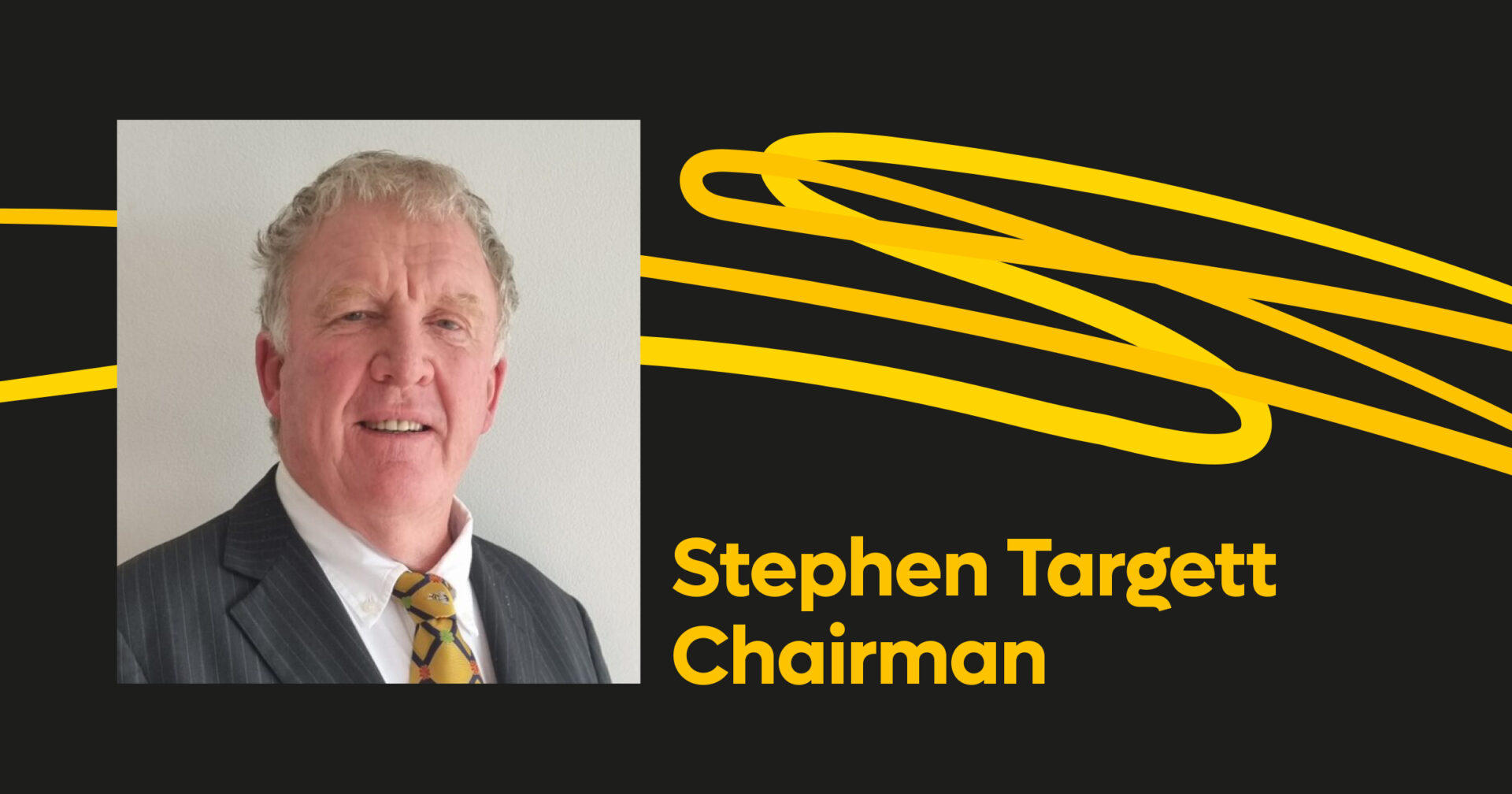
It is with some relief that the National Management Group (NMG) has approved the Varroa Response Transition to Management (T2M) Plan. An historical decision requiring all affected parties to the Deed to agree with the proposed plan and budget. The CCEPP and NSW DPI are working to have a publicly available document detailing the T2M that we can distribute through industry. We expect this to become available in the coming weeks.
Much of the success in getting the T2M approved was due to the hard work and behind the scenes phone calls by Danny our CEO and Bianca. A big thank you from industry for the hard yards.
We are aware that several beekeepers from NSW are saying ‘about time’, and this is understandable, however delivering outcomes under such a large response with government agencies and several affected pollination dependent industry peak bodies across the country is a slow and deliberate process which is frustrating to most involved.
As Chair and on behalf of the AHBIC executive I extend a big thank you to our CEO, Danny and also our Varroa Coordinator, Bianca, for getting a T2M plan over the line. This is the first T2M plan under the plant deed to be extended beyond 12 months under the special circumstances clause. As such the plan will extend the rollout of activities beyond 12 months to 24 months. The agreed upper limit of expenditure for the entire response inclusive of T2M will not exceed $100 million, only the length of time in which to carry out the activities has been extended.
This fantastic result required intense lobbying, by our CEO, to jurisdictions and pollination dependent industries who now understand the need for an extended plan and common sense prevailed. We now have a T2M where all Australian beekeepers have access to education, extension and several other important activities to transition to living with Varroa.
Bianca Giggins will continue to play an important role in the T2M rollout, remaining within AHBIC, we look forward to more great work from Bianca over the next period.
The levy sub-committee will be busy working on recommendations for our industry to repay the Federal government the estimated $1.1 million for our industries share of the cost for the varroa response. AHBIC’s request to the commonwealth to have the debt underwritten for 10 years has been granted allowing our industry to pay down the debt over time.
Once the T2M plan is up and fully functioning then AHBIC will continue concentrating on our other priorities. This includes AHBIC’s strategic plan, a review of AHBIC structure, lobbying of government on imported honey, funding for sentinel hives and continued and improved access to natural resources.
The AHBIC 2024 AGM will be in Townsville on 10th July, one day prior to the QBA conference due to a lack of venue availability immediately after the QBA conference. Delegates from our 10 member bodies will be in attendance and anyone can attend as an observer. Observer registration will be on our website or alternatively email AHBIC. AHBIC welcomes observers to attend and see what our member bodies identify as industries key issues and priorities, which AHBIC will concentrate on in the year ahead.
Stephen Targett
Chair
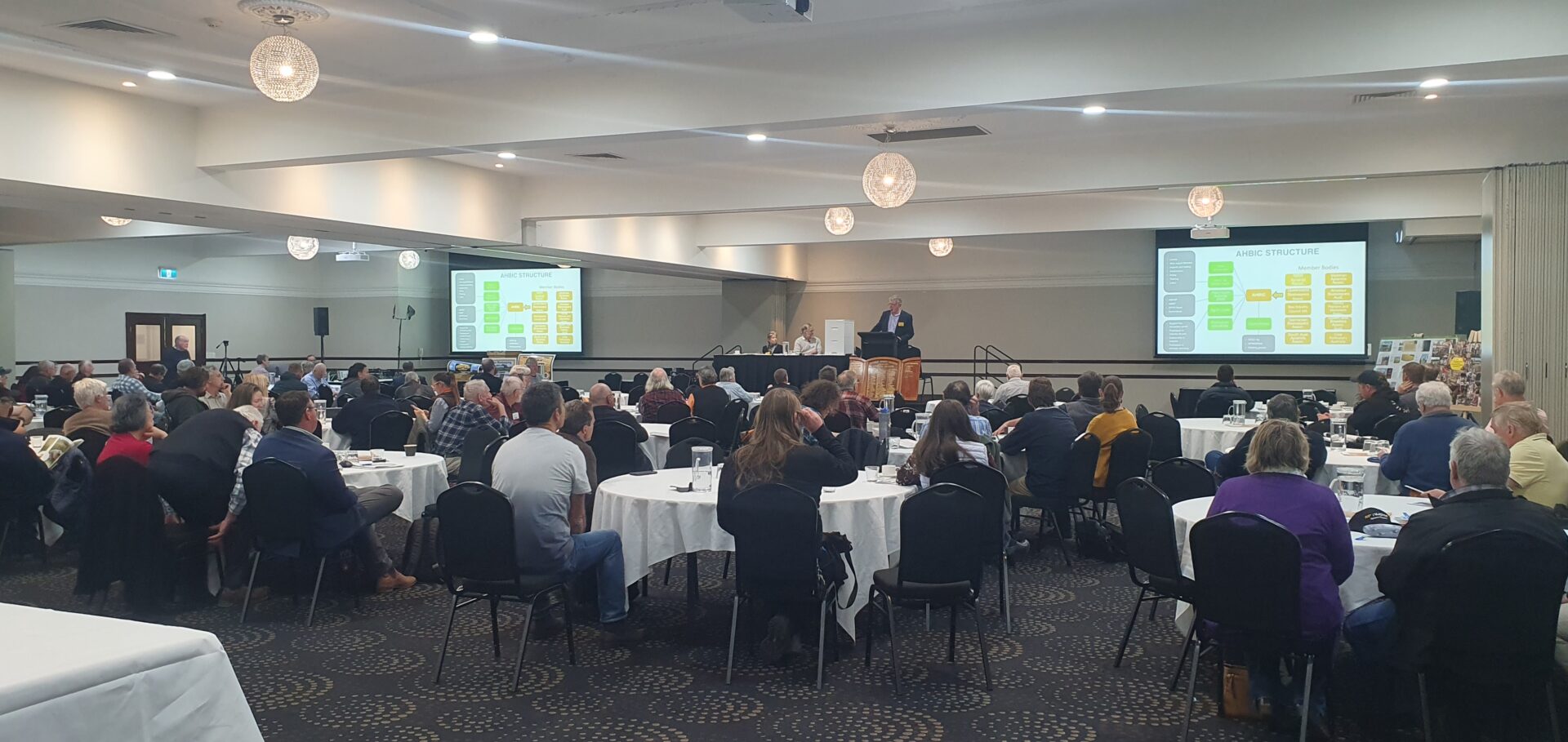
Set your calendars, find your state association and member body below, make sure to support your annual conference.
| Association | Date |
| New South Wales Apiarists Association | 23 & 24 May – Wagga Wagga, NSW |
| Tasmanian Beekeepers Association | 31 May & 1 June – Launceston, TAS |
| Queensland Beekeepers Association | 11 & 12 July – Townsville, QLD |
| South Australian Apiarists Association | TBA |
| Victorian Apiarists Association | 4th, 5th and 6th of June-Wonthaggi, VIC |
| Australian Honey Bee Industry Council – AGM | 10th July – Townsville, QLD |
| Honey Packers and Marketers Association | TBA |
| Australian Queen Bee Breeders Association | TBA |
| Bee Industry Council of WA
17th Asian Apiculture Association Conference and AAA Apitherapy Forum 2024 |
Field Day Only in 2024, TBA
12 – 14 June 2024 – Esplanade Fremantle, Perth WA |
| Crop Pollination Association of Australia Inc. | 22 May 2024, Wagga Wagga, venue TBA |
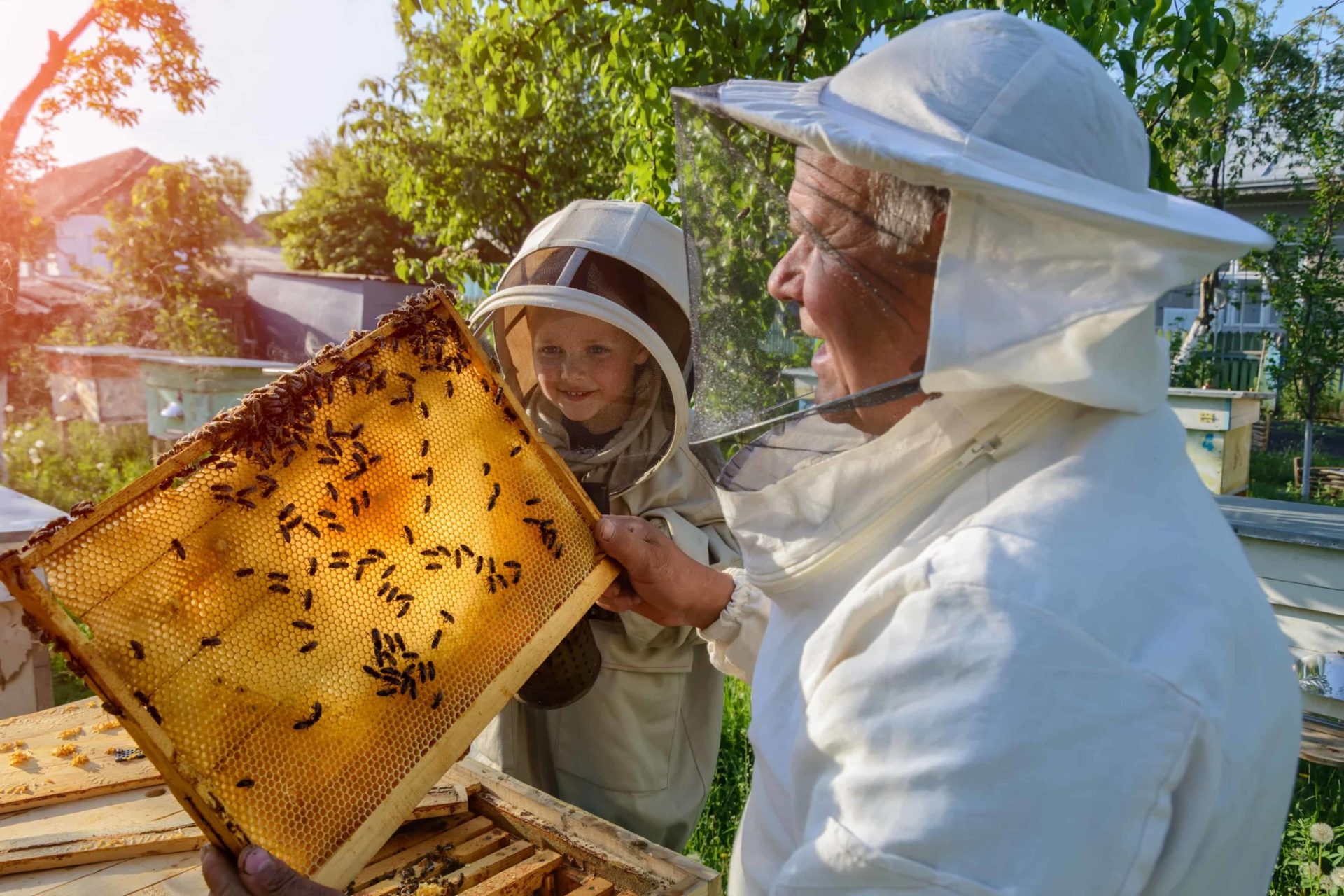
The specially designed app will assist in maintaining hive record information that satisfies the requirements of the National Biosecurity Code of Practice. The program is intended for small commercial and recreational beekeepers who sell honeybee products direct to:
The low annual fee includes the use of the hive management app and an annual desk audit.
For further information go to www.btrace.com.au

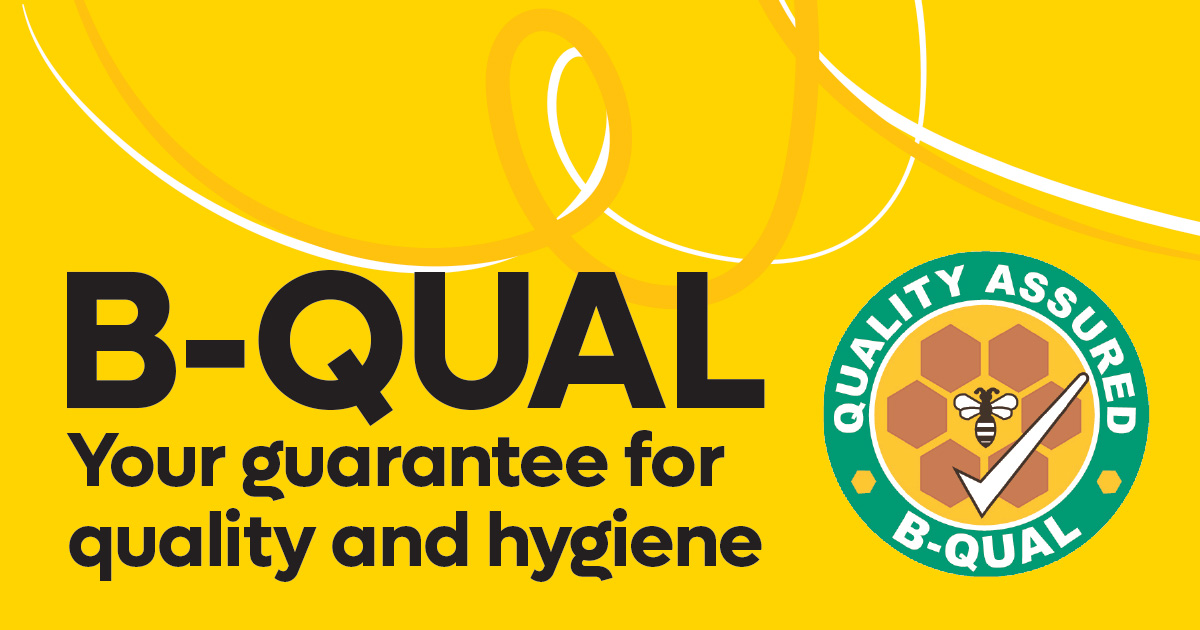
B-QUAL is an Industry Owned Quality Assurance System for Australian beekeepers.
How does B-QUAL certification benefit my business?
B-QUAL Certification also enables an enterprise to market its product under the B-QUAL logo to show that it meets the B-QUAL Industry Standards.
Complete your training at home at your own pace.
For more information and to obtain a Certification Information Pack, contact the B-QUAL Certification team.
www.bqual.com.au
B-QUAL Pty Ltd
Phone 07 49949820
Email: admin@bqual.com.au